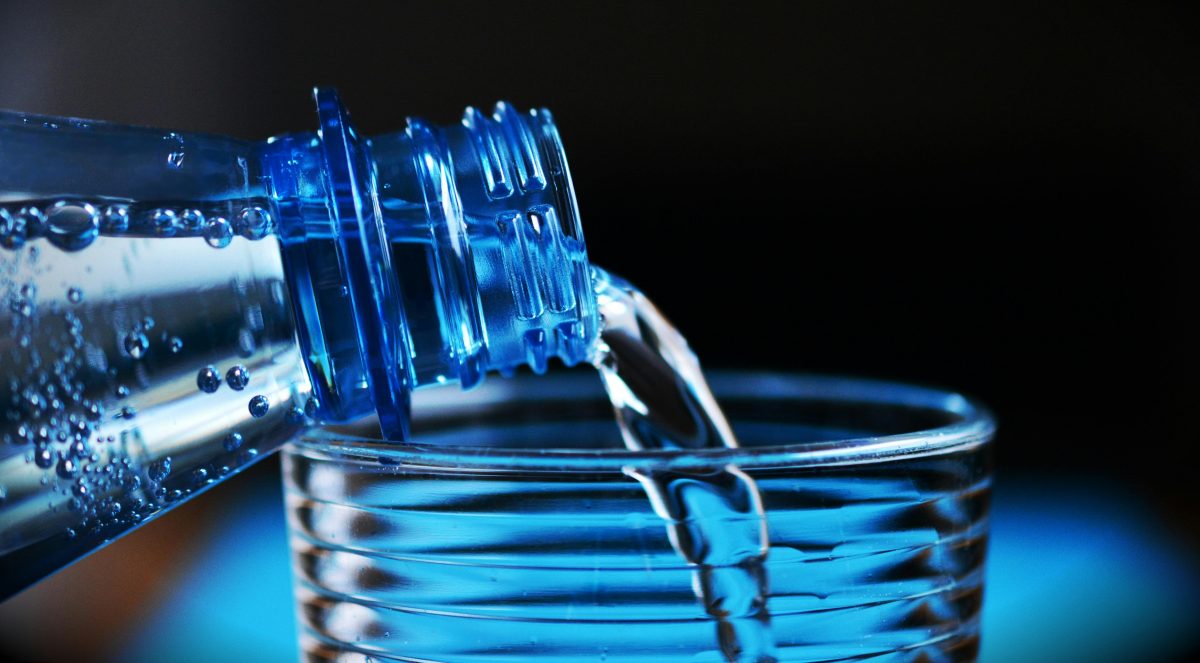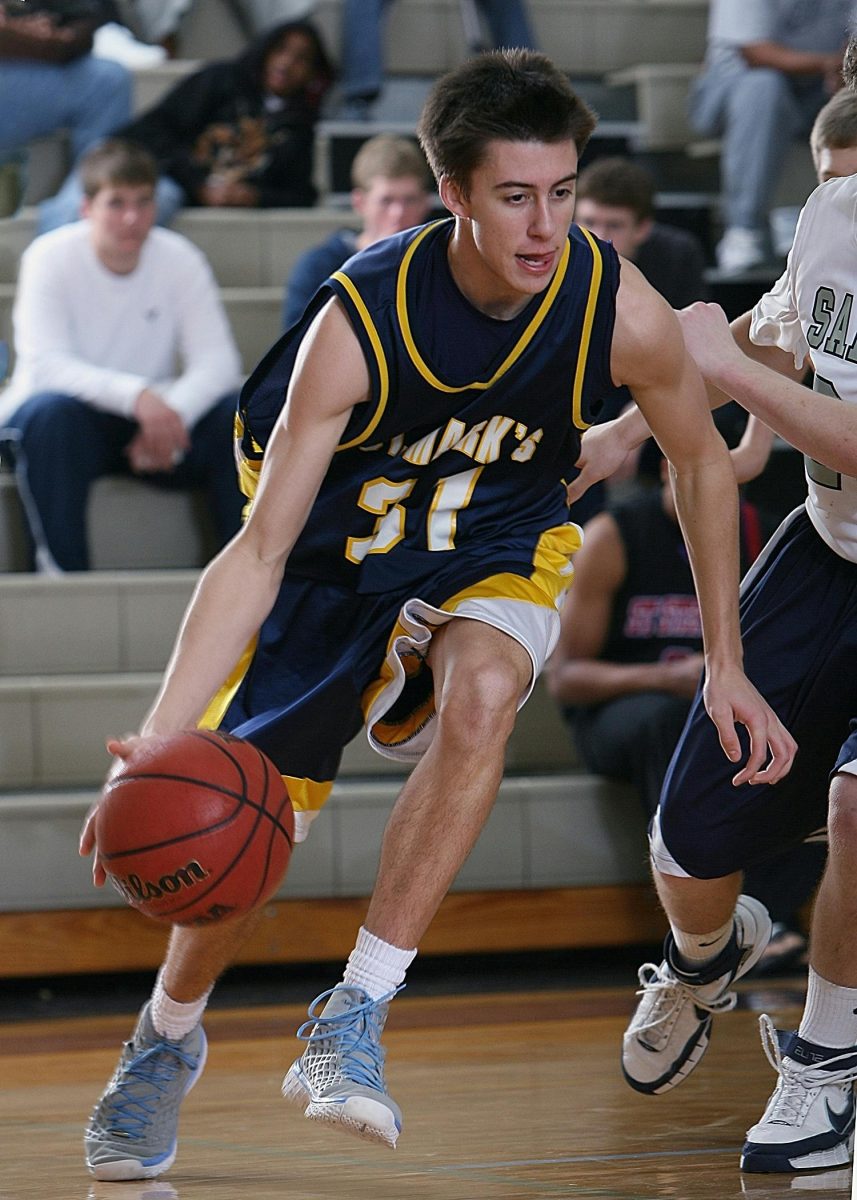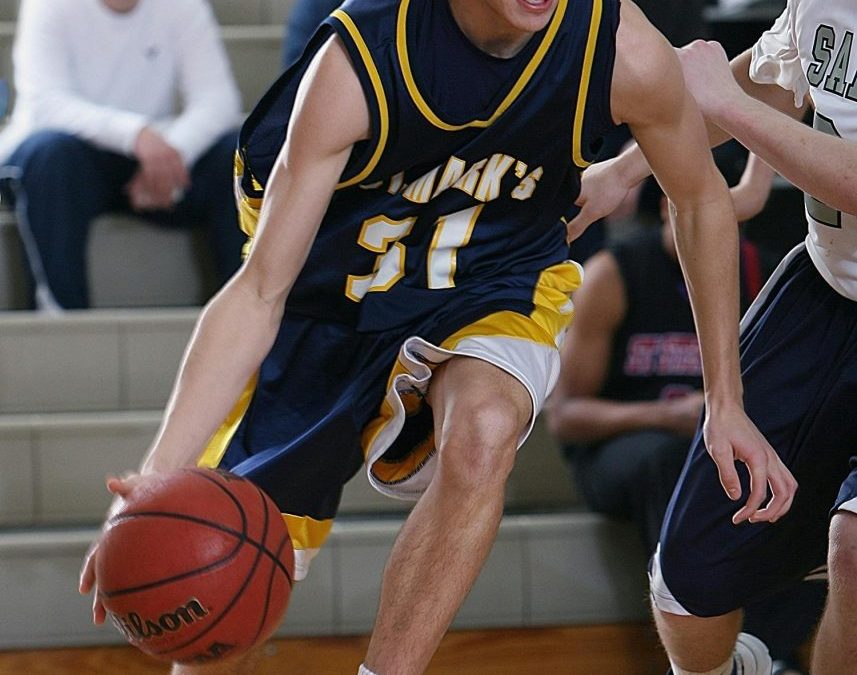Last Updated on: 14th July 2024, 10:57 am
Introduction to Sports Nutrition for Teen Athletes

Nutrition plays a pivotal role in athletic performance, acting as the fuel that powers the engine of an athlete’s body. For teen athletes, this importance is magnified. Their bodies are not just undergoing the rigors of training but are also in the throes of growth and development. This dual demand places unique nutritional needs on their shoulders, distinct from their adult counterparts or non-athletic peers.
The objectives of this article are clear-cut. We aim to shed light on the critical importance of nutrition in enhancing athletic performance. More so, we delve into the specific nutritional requirements of teen athletes, acknowledging their unique physiological and developmental stage. By the end of this read, the goal is to equip teen athletes, and those who support them, with the knowledge to optimize their diet for peak performance and healthy growth.
Understanding the right balance of nutrients, the timing of meals, and the importance of hydration can significantly impact an athlete’s performance and overall health. Let’s embark on this journey to unlock the full potential of teen athletes through the power of sports nutrition.
Understanding Macronutrients and Their Roles

Carbohydrates: Fueling Athletic Performance
- Carbohydrates are the primary fuel source for athletes, especially during high-intensity training and competitions.
- They are stored in the muscles and liver as glycogen, ready to be converted into energy when the body demands it.
- A diet rich in carbohydrates ensures that teen athletes have the energy reserves needed to sustain their performance, making it a cornerstone of sports nutrition.
Proteins: Building and Repairing Muscles
- Proteins are the building blocks of muscle. They play a crucial role in muscle repair and growth, processes that are intensified by athletic training.
- For teen athletes, incorporating adequate protein into their diet is essential not just for muscle development, but also for supporting overall growth.
- By facilitating the repair of muscle fibers damaged during exercise, proteins help in strengthening the body, preparing it for future challenges.
Fats: A Concentrated Energy Source and Hormone Production
- Fats, often misunderstood, are actually a vital component of an athlete’s diet.
- They serve as a concentrated source of energy, particularly useful during prolonged, moderate to low-intensity exercise.
- Beyond energy, fats are essential for the production of hormones, including those that regulate growth, metabolism, and inflammation.
- Ensuring a healthy intake of fats supports not just energy levels but also the holistic development and well-being of teen athletes.
Understanding and integrating these macronutrients into a teen athlete’s diet can significantly enhance performance, support growth, and foster overall health. By focusing on the quality and balance of carbohydrates, proteins, and fats, young athletes can lay a strong foundation for both their athletic endeavors and their journey through adolescence.
The Significance of Micronutrients and Hydration

Vitamins and Minerals: Enhancing Athletic Performance and Recovery
- Micronutrients, though required in smaller amounts than macronutrients, play pivotal roles in optimizing athletic performance and expediting recovery.
- Vitamins and minerals support a myriad of bodily functions, including energy production, oxygen delivery, and muscle contraction.
- For teen athletes, ensuring a diet rich in these nutrients is crucial. It aids in improving endurance, strength, and overall performance.
- Moreover, adequate intake of specific vitamins and minerals can hasten recovery, reducing downtime between training sessions.
Hydration: Why Water is Crucial for Teen Athletes
- Water is the essence of life, and its importance magnifies in the realm of sports.
- For teen athletes, staying adequately hydrated is non-negotiable.
- Water regulates body temperature, lubricates joints, and facilitates the transport of nutrients, making it indispensable for peak performance.
- Dehydration, even in its mildest form, can impair physical abilities, cognitive function, and overall health.
- Thus, prioritizing hydration is paramount for those looking to excel in their athletic pursuits.
Strategies to Ensure Adequate Vitamin, Mineral, and Water Intake
- Ensuring a balanced diet rich in fruits, vegetables, lean proteins, and whole grains is the first step toward meeting micronutrient needs.
- Incorporating a variety of colorful foods not only makes meals more appealing but also ensures a broad spectrum of vitamins and minerals.
- For hydration, carrying a water bottle and sipping regularly throughout the day, especially before, during, and after training, is key.
- Monitoring urine color can serve as a simple yet effective hydration gauge; pale yellow indicates proper hydration.
- Lastly, consulting with a nutritionist can provide personalized guidance, tailoring dietary and hydration strategies to meet individual needs and athletic goals.
Together, a focus on micronutrients and hydration complements the foundational principles of macronutrient intake and proper technique. It completes the puzzle of sports nutrition for teen athletes, setting the stage for not just improved performance but also long-term health and well-being.
Timing of Nutrient Intake: Pre, During, and Post-Competition

Pre-competition: What to eat and when
- Before the competition, the focus is on fueling up. Eating a meal rich in carbohydrates 3 to 4 hours before the event provides the energy needed for peak performance.
- This meal should be low in fat and fiber to ensure easy digestion and to prevent any gastrointestinal discomfort.
- A small, carbohydrate-rich snack 30 minutes to an hour before the competition can also help maintain energy levels.
During competition: Maintaining energy and hydration
- During the event, the primary goals are to stay hydrated and maintain energy levels.
- Drinking water or an electrolyte-rich sports drink is crucial to prevent dehydration.
- For competitions lasting longer than an hour, consuming small amounts of carbohydrates can help sustain energy. This can be in the form of a sports drink, a banana, or a small energy bar.
Post-competition: Recovery nutrition
- After the competition, the focus shifts to recovery. Consuming a mix of carbohydrates and protein within 30 minutes after the event supports muscle repair and replenishes energy stores.
- A recovery meal or snack might include a protein shake, a turkey sandwich, or yogurt with fruit.
- Hydration remains important; continue drinking water or a sports drink to replace fluids lost during the competition.
Understanding and implementing these nutritional strategies around competition times can significantly impact a teen athlete’s performance and recovery. By fueling the body with the right nutrients at the right times, young athletes can maximize their potential and set the stage for both immediate success and long-term health.
Common Nutritional Challenges and Solutions for Teen Athletes

Balancing Nutritional Needs with a Busy Lifestyle
Teen athletes often juggle school, sports, and social activities, making it challenging to prioritize nutrition. Planning is key. Encourage the preparation of balanced meals in advance and carrying healthy snacks. This proactive approach ensures that despite a packed schedule, the nutritional needs essential for peak performance and growth are met.
Resisting Fast Food and Unhealthy Snacks
The allure of fast food and unhealthy snacks can be strong, especially with the social and time pressures teens face. However, these options can undermine athletic performance and health. Opting for nutritious alternatives that are also convenient, such as fruits, nuts, and whole-grain sandwiches, can satisfy cravings without the negative impacts. Education on the long-term benefits of healthy eating can also empower teens to make better choices.
Healthy Weight and Body Composition Management
Managing weight and body composition is a common concern among teen athletes, with many seeking to optimize performance through physical conditioning. Rather than focusing on the scale, the emphasis should be on a balanced diet rich in nutrients and regular, varied physical activity. This approach promotes muscle development and healthy body composition naturally. Consulting a sports nutritionist can provide personalized guidance, ensuring dietary habits support both athletic and developmental needs.
By addressing these challenges with informed strategies, teen athletes can enhance their performance, support their growth, and maintain a healthy lifestyle. The journey to optimal nutrition is a marathon, not a sprint, requiring dedication, knowledge, and the right support system.
Supplements and Sports Nutrition: What Teens Need to Know

The Role of Supplements in a Teen Athlete’s Diet
- A balanced diet is key, but supplements can fill nutritional gaps for peak performance and recovery.
- Focus on essential vitamins and minerals when choosing supplements.
Safe and Effective Supplementation
- Opt for well-researched supplements like multivitamins, calcium, and iron—if dietary intake is insufficient.
- Consult with a healthcare provider before starting any supplement regimen to ensure safety and appropriateness.
The Risks Associated with Performance-Enhancing Substances
- Performance-enhancing substances, such as steroids or stimulants, pose significant risks.
- Focus on a nutritious diet, proper training, and adequate rest instead of quick fixes with long-term health consequences.
By understanding the role of supplements, prioritizing safety, and recognizing the dangers of performance-enhancing substances, teen athletes can make informed decisions. This knowledge, combined with a balanced diet and proper training, sets the stage for a healthy and successful athletic career.
Creating a Sustainable Sports Nutrition Plan

Involving Professionals: When to Seek Advice from a Dietitian or Nutritionist
- Consult a dietitian or nutritionist at the onset to tailor a nutrition plan to the athlete’s needs and goals.
- Seek professional advice if performance plateaus or if there are concerns about nutrient deficiencies.
Practical Tips for Meal Planning and Preparation
- Outline meals for the week, focusing on a variety of nutrient-rich foods.
- Prepare meals in advance to ensure busy schedules do not interfere with nutritional goals.
- Opt for nutritious snacks like fruits, nuts, and yogurt to fuel the body between meals.
Encouraging Family Support and Understanding
- Family plays a pivotal role in a teen athlete’s nutritional journey.
- Involve family members in meal planning and preparation to foster a supportive environment.
- Educate family members about the specific nutritional needs of teen athletes.
Together, these strategies form a comprehensive approach to sports nutrition, ensuring that teen athletes are well-equipped to meet their performance and growth objectives. With professional guidance, practical meal planning, and family support, young athletes can build a sustainable nutrition plan that fuels their success on and off the field.
In Closing
Optimal nutrition fuels teen athletes’ peak performance. It’s a balance of science and dedication, guiding them towards their goals. By integrating a diet rich in macronutrients, micronutrients, and proper hydration, young athletes can enhance their performance and support their growth. This journey, though challenging, is rewarding, offering a foundation for both immediate success and long-term health. Let’s encourage our teen athletes to embrace this path, empowering them to reach their full potential on and off the field.
Sports Nutrition for Teen Athletes FAQs
Teen female athletes need to pay particular attention to their intake of iron and calcium, nutrients essential for their development and athletic performance. Iron supports oxygen delivery to muscles, and its deficiency can lead to fatigue and decreased performance, while calcium is crucial for bone health. Ensuring a diet rich in these nutrients, along with a balanced intake of other vitamins and minerals, supports optimal health and athletic performance.
While some supplements may benefit teen athletes, they should not replace a balanced diet. Supplements like protein powders or creatine can support training goals, but it’s essential to use them responsibly and under the guidance of a healthcare professional. A food-first approach ensures that athletes receive the vitamins and minerals needed for optimal health and performance.
Teen athletes can effectively gain muscle by combining strength training with a diet rich in calories and nutrients, especially protein. Consistent strength training stimulates muscle growth, while consuming enough calories and protein supports muscle repair and development. It’s also important to allow adequate rest and recovery for muscles to grow.
During the off-season, teen athletes should focus on maintaining a balanced diet that supports general health and activity levels, adjusting their calorie intake as needed. This period can be used to build muscle or recover, requiring a continued emphasis on protein, carbohydrates, and healthy fats. It’s also a good time to address any nutritional deficiencies and experiment with new foods or dietary strategies.
Teen athletes need approximately 0.8 to 1.0 grams of protein per kilogram of body weight daily, depending on their level of activity. Protein is crucial for muscle repair and growth, especially after intense workouts or competitions. It’s important to distribute protein intake throughout the day for optimal absorption and utilization by the body.
Yes, hydration is crucial for teen athletes as it impacts both performance and recovery. Adequate fluid intake before, during, and after exercise helps maintain blood volume, regulate body temperature, and prevent muscle cramps. Dehydration can lead to decreased performance, fatigue, and increased risk of heat-related illnesses.
The best snacks for teen athletes are those that combine carbohydrates and protein, such as a banana with peanut butter or a small yogurt with fruit. These snacks provide a quick energy boost and aid in muscle repair, making them ideal before or after workouts. It’s important to choose snacks that are easy to digest and provide a steady source of energy.
Timing is critical in sports nutrition as it affects how well nutrients are absorbed and utilized by the body. Consuming carbohydrates and protein before and after workouts can enhance performance, promote recovery, and reduce muscle soreness. Proper meal timing helps ensure that athletes have the energy they need for training and competitions, while also supporting overall growth and development.
Carbohydrates are the primary energy source for teen athletes, supporting both high-intensity and endurance activities. They fuel workouts and help with recovery by replenishing glycogen stores in the muscles. Including a variety of carbohydrates, such as fruits, vegetables, and whole grains, ensures a steady energy supply and essential nutrients.
Teen athletes should consume a meal rich in carbohydrates, moderate in protein, and low in fat about 2-3 hours before a game. Carbohydrates provide the necessary energy for performance, while protein helps with muscle repair and recovery. Avoiding high-fat foods ensures that the meal is digested more easily, preventing discomfort during the game.
Orlando is a all round athlete from Australia, now resident in Germany. His sports of passion of American Football(Offensive line), weight training and indoor rock climbing where he uses his 195cm wing span to his advantage.



